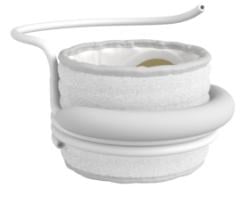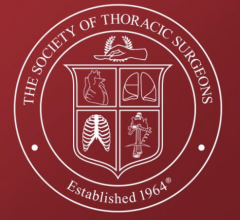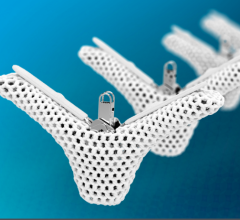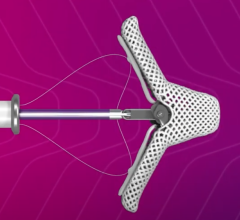May 19, 2014 — For the first time, a minimally invasive transcatheter valve — tested by Baylor Research Institute in Dallas (BRI) — has been shown to save more lives than open-heart surgery, according to new research revealed at the American College of Cardiology’s (ACC) 2014 Scientific Sessions and published in The New England Journal of Medicine.
The research is part of a clinical trial that studied the transcatheter aortic valve replacement (TAVR) procedure, which uses a wired catheter to implant a self-expanding valve device through a small incision in the leg. The procedure is used to treat patients with aortic stenosis, a condition that narrows the aortic valve, affecting blood flow.
As a principal investigator in the Medtronic CoreValve U.S. Pivotal Trial, Robert C. Stoler, M.D., FACC, FSCAI, led the study of patients at Baylor Heart and Vascular Hospital (BHVH). The hospital was one of 45 national trial sites and the only site in North Texas to participate in the research.
“This is the first time we’ve seen a transcatheter-based therapy do better than open-heart surgery patients,” Stoler said. “That really opens up a door for treating patients in the future with a far less invasive method of valve replacement.”
According to the study’s findings, patients with the TAVR CoreValve device experienced significantly improved survival ratings (85.8 percent vs. 80.9 percent) at one year, compared to participants who underwent invasive, open-heart surgery to implant replacement valves. Additionally, CoreValve patients showed better quality of life indicators at 30 days, compared with open-heart participants.
“And those results are just the tip of the iceberg,” said Stoler, adding that BRI is involved in several other studies exploring TAVR’s application to valve patients. “There are new generations of valves coming out from several different manufacturers, and we’re interested to see how those affect outcomes, including stroke.”
Future studies that will be open to patients at Baylor facilities will address those issues, in addition to exploring longevity-related questions about the valve device. Because of those continuing valve-related research efforts, Stoler said, the future is promising for aortic stenosis patients.
“If you’re a patient and you need an aortic valve replacement, you have more options now,” he said. “Transcatheter valve therapy is going to expand to a bigger patient population, and we’re seeing more patients who now have a chance to be treated with valve replacement. Plus, the new generations of valves are going to have smaller catheter sizes and fewer complications. They’re only getting better.”
In early 2014, the U.S. Food and Drug Administration (FDA) approved TAVR for treatment of patients in the extreme-risk, or inoperable, category. The successful findings of the new research presented at ACC may support FDA approval for TAVR application to high-risk patients.
For more information visit: www.BaylorScottandWhite.com


 December 24, 2025
December 24, 2025 









